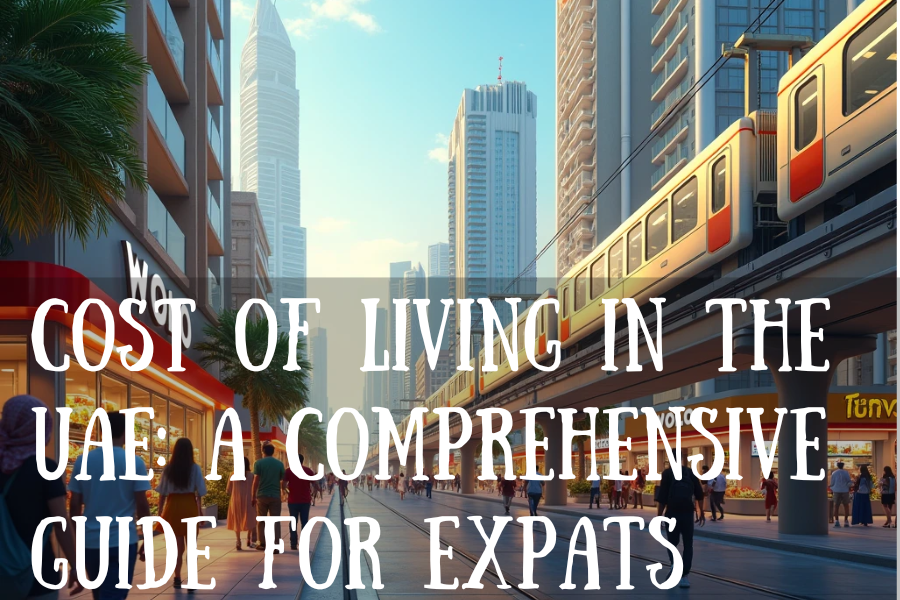The UAE is a land of opportunities, but living costs can vary widely depending on your lifestyle and location. For expats planning to move or already residing in the UAE, understanding living expenses is crucial to manage finances effectively. This guide covers housing, transportation, food, healthcare, and other essentials.
1. Housing Costs
Accommodation is often the most significant expense for expats. Prices vary by emirate and neighborhood:
- Dubai: Rent for a one-bedroom apartment ranges from AED 4,000 to AED 10,000 per month, depending on the area (e.g., Downtown Dubai vs. Al Nahda).
- Abu Dhabi: A similar apartment costs AED 3,500 to AED 8,000 monthly.
- Sharjah and Northern Emirates: More affordable options start at AED 2,500.
Consider shared accommodations or leasing in suburban areas for budget-friendly options.
2. Transportation Costs
The UAE offers efficient public transport and affordable fuel prices for private vehicles.
- Public Transport: Monthly metro or bus passes cost around AED 300 in Dubai.
- Taxis: A short ride within the city typically costs AED 12–30.
- Car Ownership: Monthly car rentals range from AED 1,500 to AED 3,000, while fuel is priced at approximately AED 3.5 per liter.
3. Food and Groceries
Food costs depend on your preferences for dining out or cooking at home:
- Dining Out: Meals at mid-range restaurants cost AED 50–100 per person.
- Groceries: Monthly grocery bills average AED 700–1,500, depending on family size and dietary habits. Popular stores include Carrefour, Lulu Hypermarket, and Spinneys.
4. Healthcare Expenses
Healthcare is top-notch but can be expensive without insurance:
- Doctor Visits: AED 200–500 per consultation in private clinics.
- Insurance: Most employers cover health insurance, but additional family plans may cost AED 1,500–5,000 annually.
5. Utilities and Internet
Monthly utilities (electricity, water, and gas) typically cost:
- AED 500–800 for an apartment.
- Internet and mobile plans start at AED 250 monthly.
6. Education Costs
For expats with children, schooling is a significant consideration:
- Private Schools: Annual fees range from AED 10,000 to AED 100,000, depending on the curriculum.
- Public Schools: Primarily cater to Emirati citizens, with limited seats for expats.
7. Leisure and Entertainment
- Gym Memberships: AED 200–500 per month.
- Cinemas: AED 35–50 per ticket.
- Tourist Activities: Entry to attractions like Burj Khalifa costs AED 150–300.
Tips to Manage Living Costs
- Opt for shared housing or live in less expensive emirates.
- Use public transport instead of owning a car.
- Shop during sales and in budget-friendly markets.
Conclusion
The cost of living in the UAE varies based on lifestyle choices and location. While cities like Dubai and Abu Dhabi are more expensive, other emirates offer budget-friendly alternatives. Understanding these costs will help expats plan their finances and enjoy life in the UAE without stress.
















